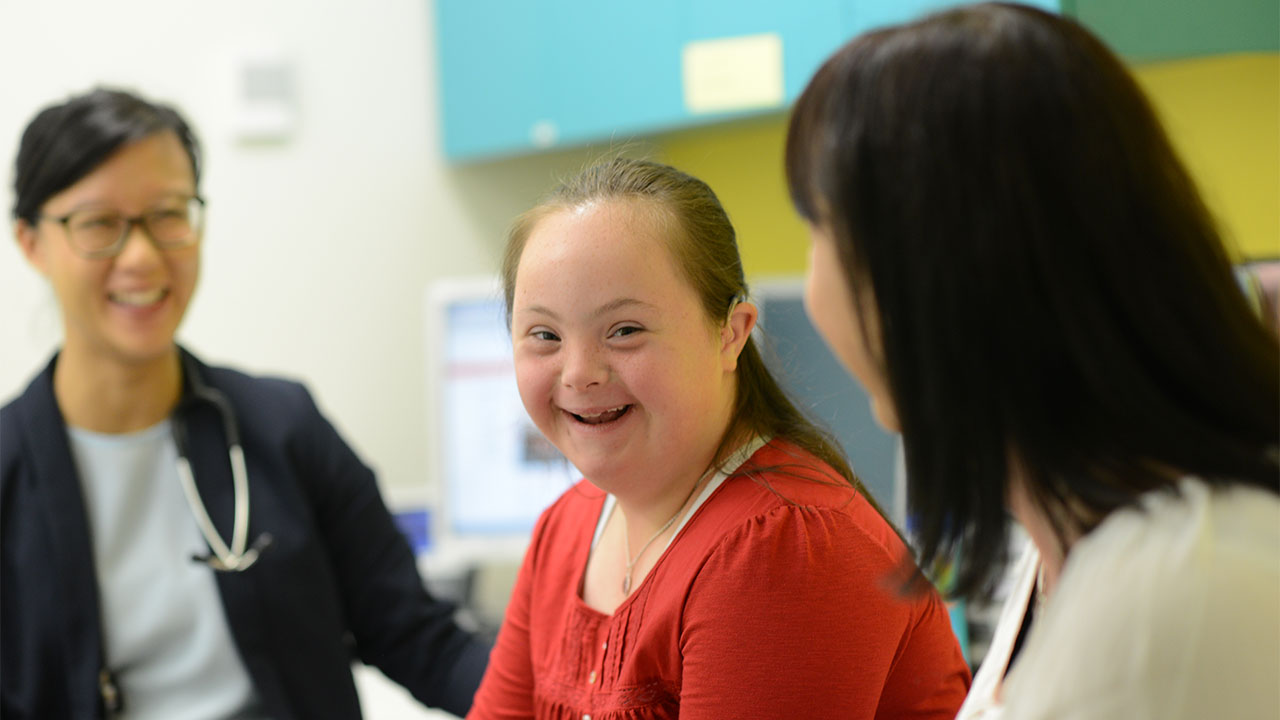Why your care plan should start with a trusted Disability Services Provider
The Vital Connection Between Impairment Services and Effective Home Treatment Solutions
The relationship between disability solutions and home care services is important for improving the lives of individuals with disabilities. Disability solutions supply important resources and assistance. On the other hand, home care remedies offer tailored help in familiar settings. This collaboration advertises independence and social incorporation. Yet, the specifics of just how these elements connect stay complicated. Understanding this connection can disclose new understandings into improving look after those in need. What are the ramifications for people and caregivers alike?
Understanding Special Needs Providers: An Introduction
While several individuals might not fully comprehend the intricacies of handicap services, recognizing their scope and value is essential for promoting inclusivity. Special needs services encompass a wide variety of support mechanisms created to aid people with physical, intellectual, or developmental handicaps. These services goal to enhance the lifestyle, promoting self-reliance and engagement in society. They include academic programs, work assistance, transport aid, and medical care services tailored to individual needs.Furthermore, these services often include collaboration among numerous stakeholders, including government companies, non-profit organizations, and neighborhood groups. This collective strategy warranties that people obtain thorough support that addresses their distinct difficulties. Awareness of special needs services is critical, as it encourages societal approval and the removal of stigma. By identifying the significance of these solutions, neighborhoods can produce a much more comprehensive atmosphere, ultimately benefiting every person and advertising level playing fields for individuals with impairments.
The Role of Home Treatment in Supporting People With Disabilities
Home care plays a crucial duty in improving the lives of individuals with impairments by supplying individualized support in familiar settings. This kind of care permits individuals to keep their freedom while getting support customized to their certain needs. Caregivers not just use physical support, such as assist with everyday tasks like showering and meal prep work, however additionally supply psychological support and companionship.In addition to functional aid, home care services promote social interaction, which is basic for mental wellness. By engaging people in community activities or helping with interaction with family members and close friends, caregivers aid combat feelings of seclusion. Home care additionally eases the burden on relative, permitting them to concentrate on their very own responsibilities while guaranteeing their enjoyed ones receive appropriate care (Disability Services). Eventually, home treatment serves as a significant support group, encouraging individuals with impairments to prosper within their very own homes
Tailored Treatment Strategies: Meeting Special Demands
Customized care strategies are vital for efficiently attending to the special requirements of people with handicaps. These plans are designed to offer tailored support, taking into consideration the particular difficulties and choices of each person. By carrying out thorough assessments, care suppliers can recognize staminas and locations calling for aid, ensuring that treatment is both effective.incorporating and relevant input from the specific and their member of the family cultivates a joint approach, enhancing involvement and complete satisfaction. Tailored care strategies might consist of different services, such as physical treatment, work-related treatment, and individual care assistance, all focused on advertising general wellness. Routine examinations of these care strategies are very important to adjust to altering circumstances and needs. This flexibility permits for prompt modifications, guaranteeing that people obtain excellent assistance throughout their lives. Ultimately, customized care strategies function as a foundation for supplying high quality care that respects the dignity and originality of each person.
Enhancing Independence With Impairment Services
Encouraging people with handicaps to achieve higher independence is a primary goal of disability solutions. These services provide crucial resources that facilitate self-sufficiency and improve the lifestyle for those affected. By using personalized assistance, such as mobility training, adaptive innovations, and life skills advancement, handicap services allow people to navigate daily challenges much more effectively.Access to community-based programs and social inclusion efforts additionally cultivates self-reliance. Via these chances, people can take part in significant tasks, build relationships, and create a feeling of belonging. Additionally, information and recommendation services aid connect individuals to crucial resources, ensuring they get the help required to thrive.Ultimately, enhancing independence through impairment services not just advantages people yet additionally advertises a more comprehensive culture. By damaging down barriers and encouraging self-advocacy, these services equip people to lead meeting lives, adding to their areas in valuable ways.
The Value of Educating for Caretakers
Educating for caretakers is essential for creating important skills that directly affect the high quality of care given to individuals with disabilities. By enhancing their knowledge and capacities, caretakers can foster caring connections that promote trust and understanding. This concentrate on training not only improves solution distribution however likewise improves the total caregiving experience.
Essential Ability Advancement
Skill growth is vital for caregivers in the handicap solutions and home care fields. Correct training gears up caregivers with the basic abilities required to provide efficient support and assistance to people with handicaps. This includes understanding details clinical requirements, effective interaction techniques, and the ability to react to different behavioral obstacles. Furthermore, ability advancement enhances caretakers' capacity to cultivate self-reliance in customers, ensuring they can perform day-to-day activities with self-respect. Ongoing training additionally promotes self-confidence and task complete satisfaction amongst caregivers, lowering turnover prices in the industry. By focusing on skill advancement, companies can guarantee that caregivers are well-prepared to satisfy the varied requirements of those they offer, eventually contributing to a much more reliable and compassionate treatment environment.
Enhancing Care High Quality
Boosting the quality of care for individuals with disabilities rests on the comprehensive training supplied to caregivers. Well-trained caretakers have necessary knowledge and skills needed to deal with the one-of-a-kind needs of their clients successfully. Considerable training programs encompass numerous aspects, such as comprehending disability-specific difficulties, efficient interaction techniques, and safety protocols. Furthermore, continuous education assurances that caretakers continue to be upgraded on ideal techniques and arising modern technologies in home treatment - Disability Support. This commitment to training not only enhances solution distribution yet additionally cultivates a feeling of self-confidence amongst caregivers, which translates into improved care top quality. Inevitably, spending in caretaker training is crucial for creating a setting where people with specials needs get the alert, respectful, and effective care they are entitled to
Building Compassionate Relationships

Building an Encouraging Atmosphere at Home

Accessible Home Alterations
Lots of individuals with handicaps deal with considerable obstacles in navigating their home settings, making obtainable home adjustments necessary for fostering freedom and safety. These alterations can consist of setting up ramps, widening doorways, and developing barrier-free restrooms, therefore making it possible for much easier accessibility throughout the home. Furthermore, including grab bars and non-slip surfaces can considerably minimize the risk of drops, promoting an extra protected space. Stairlifts or elevators might also be required for multi-level homes, making certain that all areas are reachable. By carrying out these adjustments, caregivers can assist develop an environment where individuals can browse their areas with self-confidence. Ultimately, available home adjustments play an important role in improving the top quality of life for those with impairments, enabling them to prosper in their very own homes.
Personalized Treatment Program
Accessible home modifications lay the groundwork for an atmosphere where individuals with handicaps can grow, but customized assistance is just as crucial. Individualized care plans play a necessary duty in addressing the unique demands of each person. These strategies are established via comprehensive assessments that think about medical requirements, personal choices, and everyday routines. By concentrating on private staminas and challenges, caregivers can develop methods that promote independence and boost top quality of life. Routine assessments assure that treatment plans continue to be reliable and appropriate, enabling changes as requirements change in time. This individualized strategy not only enhances the experience of those obtaining care yet additionally advertises a sense of freedom, inevitably adding to a much more supportive and encouraging home atmosphere.
Family Members Involvement Approaches
Household participation is necessary in establishing an encouraging environment for people with impairments in the house. Engaging member of the family in care methods fosters a sense of belonging and security. Efficient communication is critical; regular family meetings can help with conversations regarding the person's needs and preferences. Furthermore, informing member of the family regarding the specific handicaps can enhance understanding and empathy, bring about much better assistance. Motivating involvement in daily tasks not only enhances partnerships yet also promotes self-reliance for the person. It is very important for families to collaborate with impairment solution suppliers to produce cohesive care strategies. By proactively including member of the family, a supporting ambience is grown, ultimately enhancing the high quality of life for those with handicaps.
Gauging the Effect of Integrated Treatment Solutions
The effectiveness of incorporated care solutions can significantly influence the lifestyle for individuals with disabilities. Determining this effect needs a diverse method that encompasses various metrics, including health end results, individual satisfaction, and cost-effectiveness. Wellness end results can be examined by tracking improvements in movement, mental wellness, and general wellness, offering tangible evidence of care performance. Customer fulfillment surveys can capture the experiences of people and their families, supplying understandings into the perceived top quality of care received. In addition, evaluating cost-effectiveness helps to assure that sources are being utilized successfully, enabling for sustainable care versions. By utilizing these measurement approaches, stakeholders can acquire a complete understanding of how incorporated care options positively influence individuals with handicaps. Eventually, this data not just aids in refining existing solutions but additionally informs future plan decisions, making sure that care stays aligned with the progressing needs of this populace.
Frequently Asked Questions
Just How Can Families Promote for Better Impairment Solutions and Home Care?
Households can promote for boosted impairment solutions and home treatment by researching sources, participating in community meetings, involving with neighborhood representatives, sharing personal experiences, creating support system, and teaming up with organizations dedicated to handicap civil liberties and care enhancements.
What Are Usual Mistaken Beliefs Concerning Disability Solutions and Home Treatment?

Exist Financial Assistance Options for Special Needs Providers and Home Care?
Monetary help options for handicap services and home treatment consist of federal government programs, grants, and insurance protection. Resources differ by place, calling for people to research regional companies and companies that provide financial backing tailored to their requirements.
Just How Can Technology Improve Home Care for Individuals With Disabilities?
Innovation can improve home take care of people with specials needs by giving assistive tools, telehealth services, and checking systems. visit homepage These innovations improve availability, advertise freedom, and allow caretakers to react extra effectively to the needs of their clients.
What Resources Are Available for Caregivers of People With Disabilities?
Numerous sources exist for caretakers of people with specials needs, consisting of federal government help programs, assistance teams, academic workshops, on the internet forums, and specialized training. These resources aim to enhance caregivers' skills and offer useful and emotional assistance. The partnership in between handicap solutions and home treatment services is important for enhancing the lives of individuals with impairments. Home treatment additionally alleviates the worry on household members, allowing them to concentrate on their own obligations while guaranteeing their enjoyed ones get sufficient treatment. By performing detailed evaluations, treatment carriers can recognize locations and strengths calling for assistance, making certain that care is both relevant and effective.Incorporating input from the individual and their household members cultivates a collective approach, boosting engagement and complete satisfaction. Customized visit the website care strategies may include different services, such as physical treatment, work treatment, and personal treatment aid, all aimed at advertising general health. Innovation can boost home care for people with handicaps by supplying assistive tools, telehealth services, and checking systems.